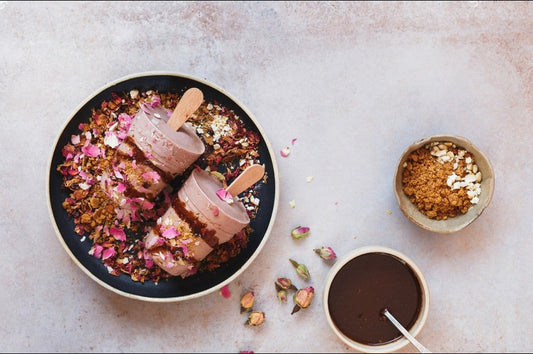
Mustard Oil Myths Debunked: Facts vs. Fiction with Puress
Mustard oil, a staple in many cuisines across the world, particularly in South Asian cooking, has been the subject of numerous myths and misconceptions. As health-conscious consumers seek out natural and traditional ingredients, mustard oil has gained attention for its potential benefits and controversies. In this blog post, we'll explore common myths surrounding mustard oil and separate fact from fiction with the help of Puress, a leading brand in pure and high-quality cooking oils.
Myth 1: Mustard Oil is Banned for Consumption in Some Countries
Fact: While it's true that mustard oil has faced restrictions in some countries, including the United States, it's important to understand the context. The U.S. Food and Drug Administration (FDA) has labeled mustard oil as "not generally recognized as safe" for use in cooking due to its high erucic acid content. However, this doesn't constitute an outright ban.
Puress Perspective: Puress ensures that their mustard oil meets international safety standards by carefully controlling the erucic acid content. Through advanced processing techniques, Puress maintains the traditional flavor and benefits of mustard oil while adhering to global safety guidelines.
Myth 2: All Mustard Oil is Created Equal
Fiction: This is a common misconception. The quality of mustard oil can vary significantly depending on the manufacturing process and the quality of seeds used.
Fact: The production method greatly influences the oil's nutritional profile and safety. Cold-pressed mustard oil, for instance, retains more nutrients and natural compounds compared to refined versions.
Puress Perspective: Puress emphasizes the importance of their rigorous quality control measures. Their mustard oil is made from carefully selected mustard seeds and processed using state-of-the-art technology to ensure purity and nutritional integrity.
Myth 3: Mustard Oil is Unhealthy Due to Its High Fat Content
Fiction: While mustard oil is indeed high in fats, it's not accurate to label it as unhealthy based solely on this fact.
Fact: Mustard oil contains a favorable ratio of omega-3 to omega-6 fatty acids and is rich in monounsaturated fats, which are considered heart-healthy. It also contains alpha-linolenic acid, an essential fatty acid with potential health benefits.
Puress Perspective: Puress highlights the balanced fatty acid profile of their mustard oil, educating consumers on the importance of incorporating healthy fats into their diet in moderation.
Myth 4: Heating Mustard Oil Destroys All Its Nutrients
Fiction: While it's true that heat can affect some nutrients in oils, it doesn't destroy all the beneficial compounds in mustard oil.
Fact: Mustard oil has a high smoke point, making it suitable for high-temperature cooking. While some heat-sensitive nutrients may be affected, many beneficial compounds remain stable during cooking.
Puress Perspective: Puress recommends using their mustard oil for various cooking methods, including deep-frying, sautéing, and as a flavoring agent in cold preparations to maximize its nutritional benefits.
Myth 5: Mustard Oil Can Cure All Ailments
Fiction: Some proponents claim that mustard oil is a panacea for various health conditions.
Fact: While mustard oil does have some potential health benefits, it's not a miracle cure. Its antimicrobial and anti-inflammatory properties may offer some health advantages, but more research is needed to substantiate many of the claimed benefits.
Puress Perspective: Puress advocates for a balanced approach, promoting mustard oil as part of a healthy diet rather than a cure-all solution. They encourage consumers to consult healthcare professionals for medical advice.
Myth 6: Mustard Oil is Only Used in Cooking
Fiction: This myth limits the versatility of mustard oil.
Fact: Mustard oil has various applications beyond cooking. It has been traditionally used in Ayurvedic practices for massage, as a natural insect repellent, and even in some beauty treatments.
Puress Perspective: While primarily focusing on culinary uses, Puress acknowledges the multi-faceted nature of mustard oil, providing information on its diverse applications to educate consumers.
Myth 7: The Strong Smell of Mustard Oil Indicates Poor Quality
Fiction: Many people associate the pungent aroma of mustard oil with low quality or rancidity.
Fact: The strong, distinctive smell is a natural characteristic of pure mustard oil, stemming from the presence of allyl isothiocyanate, the compound responsible for its sharp flavor and aroma.
Puress Perspective: Puress educates consumers about the natural properties of mustard oil, helping them understand that the strong aroma is a sign of authenticity rather than poor quality.
Myth 8: Mustard Oil Cannot Be Used as a Substitute for Other Cooking Oils
Fiction: This myth underestimates the versatility of mustard oil in cooking.
Fact: Mustard oil can be an excellent substitute for other cooking oils in many recipes, particularly in South Asian cuisine. Its unique flavor profile can add depth to dishes.
Puress Perspective: Puress provides recipes and cooking tips to help consumers incorporate mustard oil into various cuisines, showcasing its versatility as a cooking medium.
Myth 9: All Mustard Oils Have the Same Nutritional Profile
Fiction: This myth oversimplifies the complexity of mustard oil production and quality.
Fact: The nutritional profile of mustard oil can vary based on factors such as the type of mustard seeds used, processing methods, and quality control measures.
Puress Perspective: Puress emphasizes transparency in their production process, providing detailed nutritional information for their mustard oil to help consumers make informed choices.
Myth 10: Mustard Oil is Not Suitable for People with Allergies
Fiction: While those with mustard allergies should avoid mustard oil, it's not universally unsuitable for people with allergies.
Fact: Mustard oil is free from common allergens like nuts, soy, and dairy. However, individuals with specific mustard or cruciferous vegetable allergies should exercise caution.
Puress Perspective: Puress ensures clear labeling on their products and provides allergen information to help consumers make safe choices.
As we've explored, many myths surround mustard oil, often stemming from misunderstandings or overgeneralizations. Puress, with its commitment to quality and consumer education, plays a crucial role in debunking these myths and providing accurate information about mustard oil.
Understanding the facts about mustard oil allows consumers to make informed decisions about incorporating it into their diet and lifestyle. While mustard oil offers potential benefits, it's important to use it as part of a balanced diet and in accordance with individual health needs and preferences.
Puress continues to lead the way in providing high-quality mustard oil while promoting transparency and consumer awareness. By addressing common misconceptions and highlighting the true characteristics of mustard oil, Puress empowers consumers to explore this traditional ingredient in a modern context. You can buy Puress from the global Pluugin Store with great discounts.
As with any dietary choice, it's always advisable to consult with healthcare professionals, especially for those with specific health conditions or concerns. With the right information and quality products like those offered by Puress, consumers can confidently incorporate mustard oil into their culinary repertoire, enjoying its unique flavor and potential benefits.
Continue reading
View all-

The Twin Temptation: Bakers Frappe Powder for Your Cafe-at-Home Moments
Are you tired of spending a fortune at coffee shops to get that perfect frappe? What if you could recreate that creamy, smooth, and delicious experience right in your own...
The Twin Temptation: Bakers Frappe Powder for Your Cafe-at-Home Moments
Are you tired of spending a fortune at coffee shops to get that perfect frappe? What if you could recreate that creamy, smooth, and delicious experience right in your own...
-

Spice Up Your Plate: The Golden Touch of Puress Cold Pressed Mustard Oil!
Puress Cold Pressed Mustard Oil can transform a dish with its unique flavor profile. Try it now!
Spice Up Your Plate: The Golden Touch of Puress Cold Pressed Mustard Oil!
Puress Cold Pressed Mustard Oil can transform a dish with its unique flavor profile. Try it now!
-






